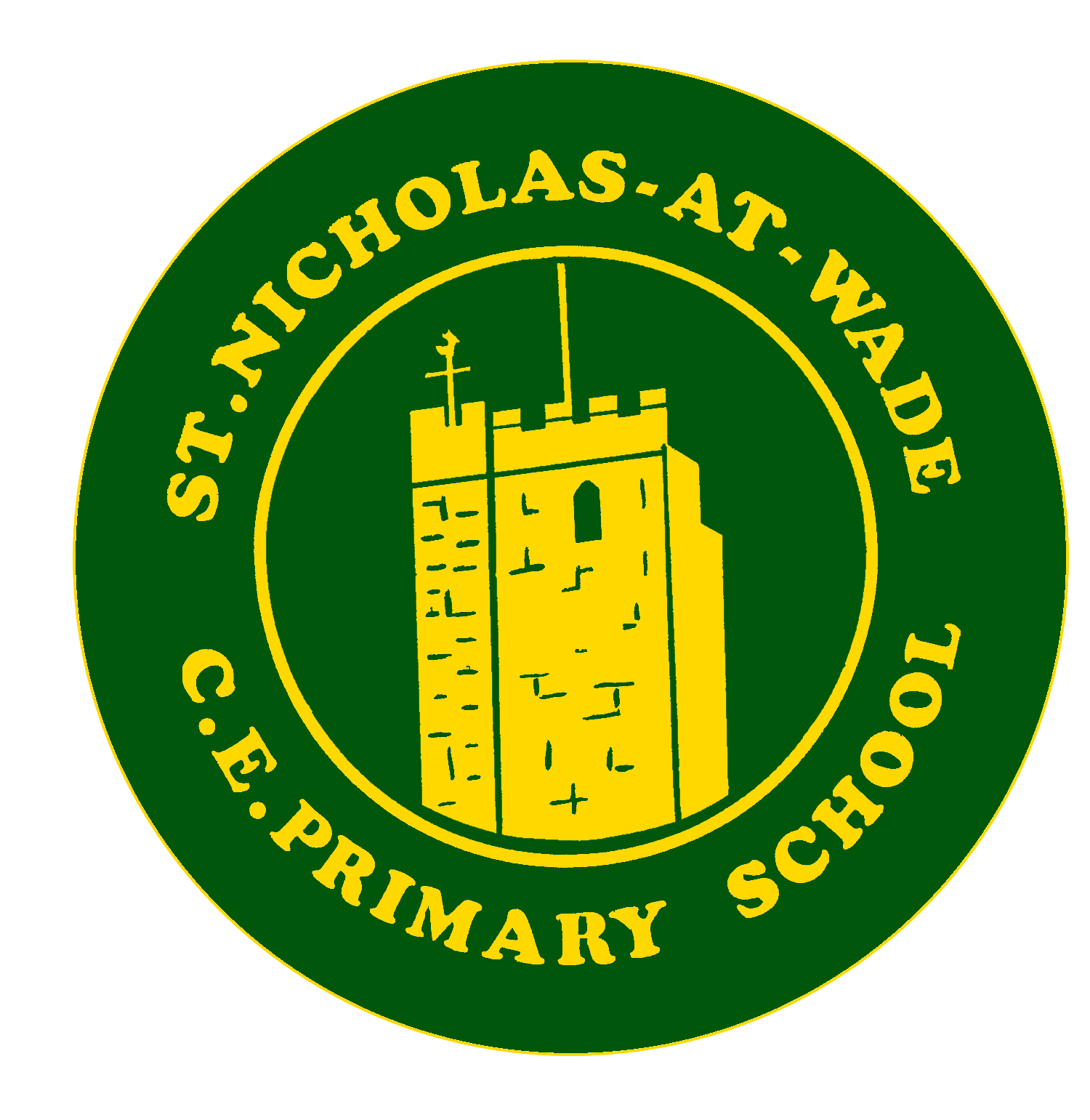Intent
|
At St. Nicholas-at-Wade Primary School, we believe that all pupils deserve a fully rounded curriculum to become confident, independent, lifelong learners. Our curriculum intent is centred around the following drivers, which are fully embedded across all subjects:
- Every child a reader
- Every child a learner
- Every child a citizen
- Every child happy and healthy
- Every child creative and curious.
|
|
This policy sets out the school’s aims, principles and strategies in relation to the teaching of Music.
At St Nicholas at Wade we aim to deliver a fun and engaging music curriculum. Music plays a significant role in every aspect of our lives and this belief is at the heart of our curriculum. We offer an integrated, practical, exploratory and child-led approach to musical learning through The Charanga Musical School Scheme. We encourage the development of musical skills as the learning progresses through listening and appraising, differing musical activities (including creating and exploring) and performing. We aim to engage and inspire children to develop a love of music and their talent as musicians, and so increase their self-confidence, creativity and sense of achievement.
The language of music is common to all generations and nations;
it is understood by everybody, since it is understood with the heart.
– Gioacchino Rossini, 1875
|
Implementation
|
|
In school we have introduced The Charanga Musical School Scheme. This is a week-by-week lesson support for each year group in the school. It provides lesson plans, assessment, clear progression, and engaging and exciting whiteboard resources to support every lesson. The Scheme supports all the requirements of the national curriculum (The English Model Music Curriculum). The interrelated dimensions of music weave through the units to encourage the development of musical skills as the learning progresses through listening and appraising, differing musical activities (including creating and exploring) and performing.
Each Unit of Work comprises the of strands of musical learning which correspond with the national curriculum for music (The English Model Music Curriculum):
- Musicianship
- Listening and Respond
- Singing
- Playing
- Improvisation and Composition
- Performing
Charanga Musical School Units of Work enable children to understand musical concepts through a repetition-based approach to learning. Learning about the same musical concept through different musical activities enables a more secure, deeper learning and mastery of musical skills. There is the opportunity to embed a deeper learning, knowledge, understanding and skills. Over time, children can both develop new musical skills and concepts, and re-visit established musical skills and concepts.
|
|
Reception
|
Year 1,2 & 3
|
Year 4, 5 & 6
|
|
|
45-minute lesson
- Listen and Appraise - 15 mins
- Musical Activities - 20 mins
- Perform/Share - 10 mins
|
One-hour lesson
- Listen and Appraise - 20 mins
- Musical Activities - 25 mins
- Perform/Share - 15 mins
|
|
Taught by Class Teacher
|
Taught as part of PPA provision by Mrs Palmer (Music teacher)
|
|
By the end of EYFS, pupils will have learnt to:
- Sing a range of well-known nursery rhymes and songs
- Perform songs, rhymes, poems and stories with others, and – when appropriate – try to move in time with music.
By the end of key stage 1, pupils will have learnt to:
- use their voices expressively and creatively by singing songs and speaking chants and rhymes
- play tuned and un-tuned instruments musically
- listen with concentration and understanding to a range of high-quality live and recorded music
- experiment with, create, select and combine sounds using the inter- related dimensions of music
By the end of key stage 2, pupils will have learnt to:
- play and perform in solo and ensemble contexts, using their voices and playing musical instruments with increasing accuracy, fluency, control and expression
- improvise and compose music for a range of purposes using the inter- related dimensions of music
- listen with attention to detail and recall sounds with increasing aural memory
- use and understand staff and other musical notations
- appreciate and understand a wide range of high-quality live and recorded music drawn from different traditions and from great composers and musicians
- develop an understanding of the history of music
|
Impact
|
|
Children at St. Nicholas at Wade display a passion and love for music inside and outside of the classroom.
They will be happy and engaged learners and confidently talk, share and reflect on their learning.
They will have been exposed to a wide range of genres and cultures which also supports their cultural capital.
Through energetic and inspirational lessons, children will be able to use music as a tool for their own well-being, accessing music for personal enjoyment, through listening for entertainment and relaxation and also more deeply embedded as talented musicians, through performance.
|
|
|
|
